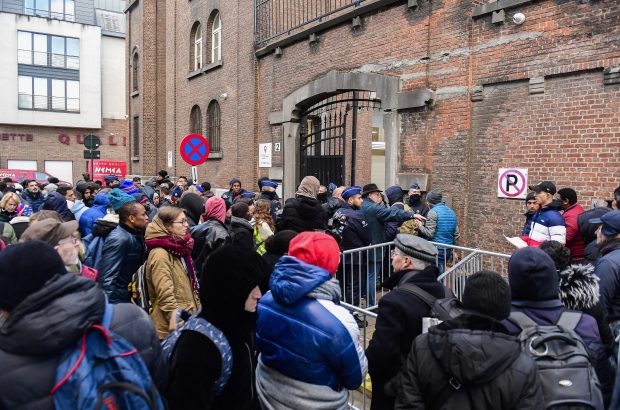- Daily & Weekly newsletters
- Buy & download The Bulletin
- Comment on our articles
Amnesty International condemns Belgium’s handling of asylum crisis
Amnesty International has condemned Belgium’s handling of the asylum crisis in a new report, citing a persistent disregard for the rights of asylum seekers that is leading to serious human suffering.
Entitled "Neither housed nor heard", the report aims to demonstrate how, since October 2021, Belgian authorities have failed to fulfil their obligations under international, European and Belgian law to provide shelter for people seeking international protection, "forcing them on to the streets".
The organisation spoke with countless homeless asylum seekers between 2021 and 2025 and the report emphasises the violation of their dignity, discrimination against single men and the damage to the rule of law caused by the ignoring of international obligations.
“I wanted to come to Belgium to continue studying to be a nurse and start working, but instead, I ended up in the Brussels metro tunnels, where I slept to protect myself from the rain,” one migrant from Palestine is quoted as saying.
Another described the appalling conditions of a squat on Rue des Palais from 2022 to 2023, saying “the squat slowly turned into a graveyard. The government didn't come, only normal people – civilian volunteers – came to bring food and warm clothes. People felt our pain, but the government didn't.”
More than 2,500 asylum seekers are currently on a waiting list for accommodation, Amnesty International said, adding that they expect the situation to worsen under the new federal government.
The Belgian government has already been ordered by national and international courts to provide extra shelter more than 12,000 times, with fines and penalties for non-compliance rising to just under €16 million.
“Belgium's persistent disregard for its human rights obligations and both domestic and international court rulings is very worrying,” said Tess Heirwegh, policy officer at Amnesty International Flanders.
According to Thomas Willekens, a policy officer at Vluchtelingenwerk Vlaanderen (Refugee Action Flanders), the issue is not a lack of means, as the Belgian government insists, but a lack of will.
“We do not believe that Belgium cannot resolve this crisis. It is simply a question of political will,” Willekens said.
He emphasised that while Fedasil is doing its best, the government is inhibiting them: “They’re putting Fedasil in a constant state of crisis… as a result, Fedasil has no longer respected the court's rulings since May 2022.”


















